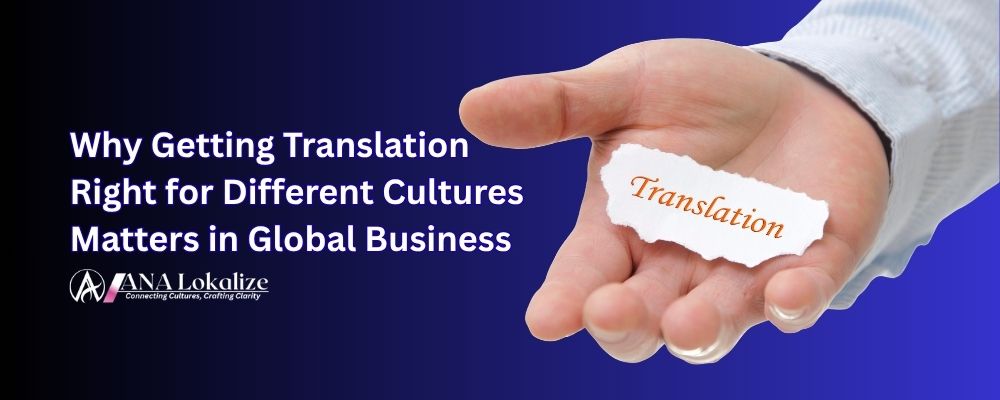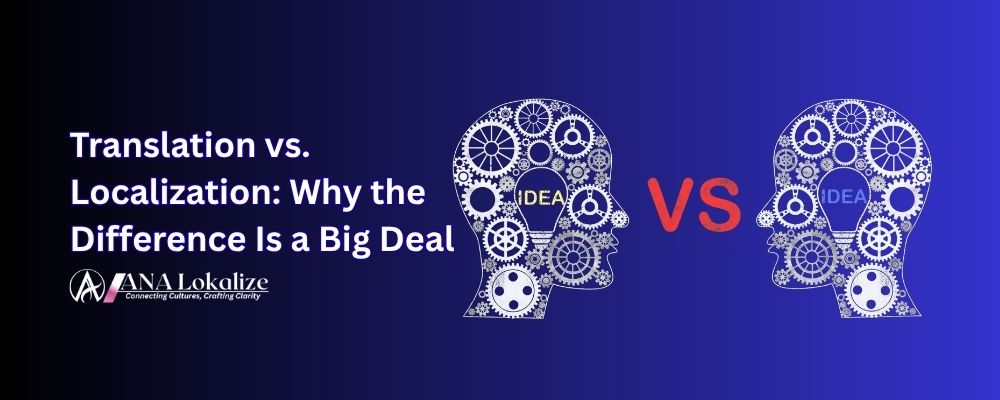How to Choose the Right Translation Partner for Your Business

Know Your Needs First
Before searching, define what you need. Do you need legal documents, marketing text, or product manuals? Each type needs a different skill. Legal text demands accuracy. Marketing text needs style and flow.
Also, decide how many languages you want. Some partners cover dozens. Others focus on fewer but do them very well. Clear needs make your search faster.
Look for Industry Experience
A translator who knows your field is a big asset. Technical fields like medicine, law, and finance need experts. Even simple product text can carry industry terms. Without that knowledge, mistakes happen.
Ask if the partner has worked with clients in your industry. Check for case studies or sample work. This shows if they can handle your content.
Check Quality Control
Good partners have a clear process. They use native speakers. They run reviews to check accuracy. Some use software to keep terms consistent across all text.
Ask about their workflow. Do they use two or more people to review each job? Do they check tone and style, not just words? A strong process leads to fewer errors.
Test Language Skills
Native speakers know more than grammar. They know culture, tone, and context. A word that feels fine in one country may offend in another.
Your partner should work with native translators in each target market. If not, the text may feel foreign and lose trust.
Ask About Tools and Tech
Many translators use software called CAT tools. These tools save past work, so terms stay the same across all files. This helps if you have big projects or repeat updates.
Check if your partner uses such tools. It can cut cost, speed up delivery, and keep text consistent.
Consider Speed and Scale
Can the partner handle large projects? Can they scale if you need 10,000 words one week and 100,000 the next?
Ask about turnaround times. See if they can deliver urgent jobs without hurting quality. A slow partner may cost you new markets.
Check Security and Privacy
Many businesses share sensitive data. Think of contracts, medical files, or product details. Make sure the partner follows strict security steps.
Ask how they protect files. Do they use secure systems for transfer? Do they sign NDAs? A strong partner should treat your data with care.
Compare Pricing, But Think Long Term
Price matters. But cheap translation often costs more later. Errors may hurt sales, damage your brand, or cause legal issues. Fixing them is costly.
Look for fair rates. Compare a few providers. The right partner may charge more, but quality and trust pay back in the long run.
Check References and Reviews
A good partner will share references. Reach out to past clients if possible. Read online reviews. Look for proof of consistent quality, speed, and support.
If many clients stay with them for years, that’s a strong sign.
Test With a Small Project
Before signing a big deal, start small. Give them a short sample job. Check accuracy, tone, and delivery time. See how they handle feedback.
A test project shows more than any sales pitch. It helps you judge if they are the right fit.
Look for Ongoing Support
Translation is not a one-time need. Websites, apps, and products need updates. A strong partner offers long-term support. They learn your brand style and tone over time.
Ask if they build style guides and term lists for you. This keeps all content aligned as your business grows.
Key Traits of a Good Partner
Works with native speakers.
Knows your industry.
Uses clear review steps.
Protects your data.
Offers fair, transparent rates.
Delivers on time, even for big jobs.
Builds a long-term partnership.
Common Red Flags
No clear process for review.
No proof of past work in your field.
Rates that sound too low to be real.
Only machine translation without human review.
Poor communication or missed deadlines.
Spotting these early saves stress and money.
Final Take
Choosing the right translation partner takes care. Define your needs. Check skills, process, and security. Test their work. Think long term.
The right partner does more than change words. They help your business reach customers, build trust, and grow across markets.
In today’s global market, that choice can be the difference between failure and success.
Stephane B. Atangana
Professional translation and localization experts with 10 years of experience in helping businesses connect with global audiences.
Search Articles
Related Articles

key to successful corporate communication, AI vs Human translation

Why Getting Translation Right for Different Cultures Matters in Global Business

Translation vs. Localization: Why the Difference Is a Big Deal
Subscribe to Our Newsletter
Get the latest translation insights and industry news delivered to your inbox.
We respect your privacy. Unsubscribe at any time.
